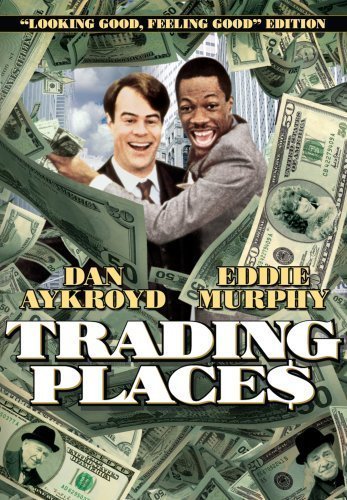There has been volumes written about CVs over the years, here’s another one. I get asked if I’ll have a look at someone’s CV about 5 times a month, so I’ve put this together. This covers mainly style – if you want advice on content then you might want to consider some career coaching. If you want a FREE consultation, then please use the contact box below.
The Myth of The CV Expert.
There is no such thing as a “CV Expert” – it’s all subjective and not an exact science, however most people will agree on a few key elements. Beware – a lot of CV guides seem to be written for the US Market and it’s a bit different this side of the pond, slightly more understated.
I will show you what I think looks good after 18 years recruiting for some of the most well-known FMCG companies in the UK – you may disagree, if this is the case I would be delighted to give you a guest blog.
A note on interim. I now specialise in interim recruitment, therefore it makes sense for me to talk about this but the same rules/formats generally apply for interim/perm roles. Whatever happens, if you want to be an interim, you need an interim CV. This CV is different to a permanent CV in that you must show 100% commitment to interim in it, especially if you are pitching to interim providers- you must also place emphasis on previous interim or project work. If people want an interim they need to be signposted that this is an interim CV they are looking at. If you have had no interim assignments then you need to reflect projects etc.
STYLE RULES:
· KISS = Keep It Simple Stupid.
· Gimmicks generally don’t work. You are a brave person if you try a gimmick, but hey, if you want to be a pioneer go for it.
· Succinct sentences are better than rambling.
· Photographs – I’ve seen some hideous business portrait pictures in my time and not all of them have been my own. Many years ago I knew of a recruitment office that kept the very “best” CV pictures on a hidden noticeboard, a sort of gruesome rogue’s gallery – it’s for this reason that I tell people that a picture on a CV is probably not a great idea. If you are lucky enough to be beautiful you will get ogled at (by both sexes) if not then probably derided – don’t shoot me for telling the truth about human nature.
Don’t Funk It Up
I have yet to meet one recruiter or senior hiring manager who upon seeing a radically different CV has said “WOW, BLACK PAPER, that is so different, it’s amazing man, we have to hire this person”.
Font
Style rules – A business font – Arial is starting to look a bit tired I’m using Calibri but Verdana, Trebuchet and Helvetica always look good.
First Person
Avoid the first person pronoun. Instead of “I delivered BRC” it should be “Delivered BRC” also avoid the third person “Jonny delivered BRC” unless you are The Queen it just sounds naff.
Contact Details
The first thing you need on a CV in the Header Section is your Name & Address and Contact Details. This needs to be on every page – people need to know how to get hold of you at all times. It does not need to say CV in the top – people know what it is.
Profile
You then follow this with your profile WHO YOU ARE, WHAT YOU DO, WHY IS THIS USEFUL? Underneath the Profile you may wish to bullet point a few successes. I would also definitely list cross-functional skills as keywords – they will be useful to future employers and especially for people searching for you on databases. Examples might be “Prince2 Qualified” or “Change Management”. This is probably one of the few times you can use jargon.
Body
Move on and cover all aspects of your career to date, gradually reducing the emphasis as you work through in reverse chronological order.
First, start off with a description of the company. How many people work for the company, it’s size and it’s market. Where it fits into the sector. You might know who Acme Pies are but nobody else does.
Then the role that you performed within this business, who you reported to, how many reports, the scope of the role or (if interim) the terms of reference for the assignment.
List your achievements in Bullet Points, (always use verifiable % or Numbers, it provides weighty proof).
End
At the end, you need to list your RELEVANT qualifications – you can leave the date out here if you are conscious that you are getting on a bit, although I have never really found age to be a barrier at all in interim. You do not need to put your 11 Plus, your Scouts Badge, Cycling Proficiency.
· Next comes your work qualifications.
· Next your Hobbies and Interests – leaving Politics, Religion and Controversy out of here eg FOX HUNTING or SCIENTOLOGIST LEVEL 8
· Finally any Volunteer work that you do, again leaving anything contentious out.
· You are under no obligation to put your children or your age or your marital status, so don’t worry. Leave off “Divorced” and don’t say things like “Father to a lovely pair of daughters” you sound like Russell Crow in Gladiator.
You can click on any of these pictures to make them bigger…
PAGE 2
Length & Content:
You have probably always been told “keep it to X amount of pages” to be honest, this is not necessary, as long as you keep it to three you will be fine. As you win more interim assignments you need to put together separate case-studies. As you become more experienced in Interim Management you will find that your assignments are all that people wish to look for and your “Corporate Career” can be hidden in a few lines in the back. Until then concentrate upon the epic struggles you have personally helped your business overcome. Delivering BRC, developing a fantastic new product, implementing LEAN, moving a factory to China. That sort of thing.
I have coached literally hundreds of people to career success. If you want to join them drop me an email on scott@malhamconsultancy.co.uk or use the form below

















